Thanks so much for joining me here at WanderFinder, where personally I’m enjoying this last breath of cold air on my cheek. How’s the weather for getting out where you live? Wherever you are, I hope you’re able to wander, if not in person then in spirit.
If you are not a subscriber, I’d love to have to have you.
And if you know someone who would enjoy WanderFinder, please do pass it along.
I have a longer post brewing about re-reading H is for Hawk. It’s the first time I’ve re-read the book since my dad died, but in the year after my Dad died, it was all I could read. I’d get to the end and — since I was in a regrettable Kindle stage at the time — draw my finger across the bottom of the screen in a motion that in no way approximated the grace of a falcon’s swoop through the sky, and begin again.
I’d forgotten how intense the book is, how crystal-clear it is on the pain of grief. I kind of can’t believe I kept reading this book, of all things. But I read passages like the one above and I’m stunned by the beauty and the detail of observation and remember how it drew me back into the world even as Helen MacDonald, the author, was pulling herself back into the world, strand by strand, feather by feather. Tethering herself to a hawk indeed.
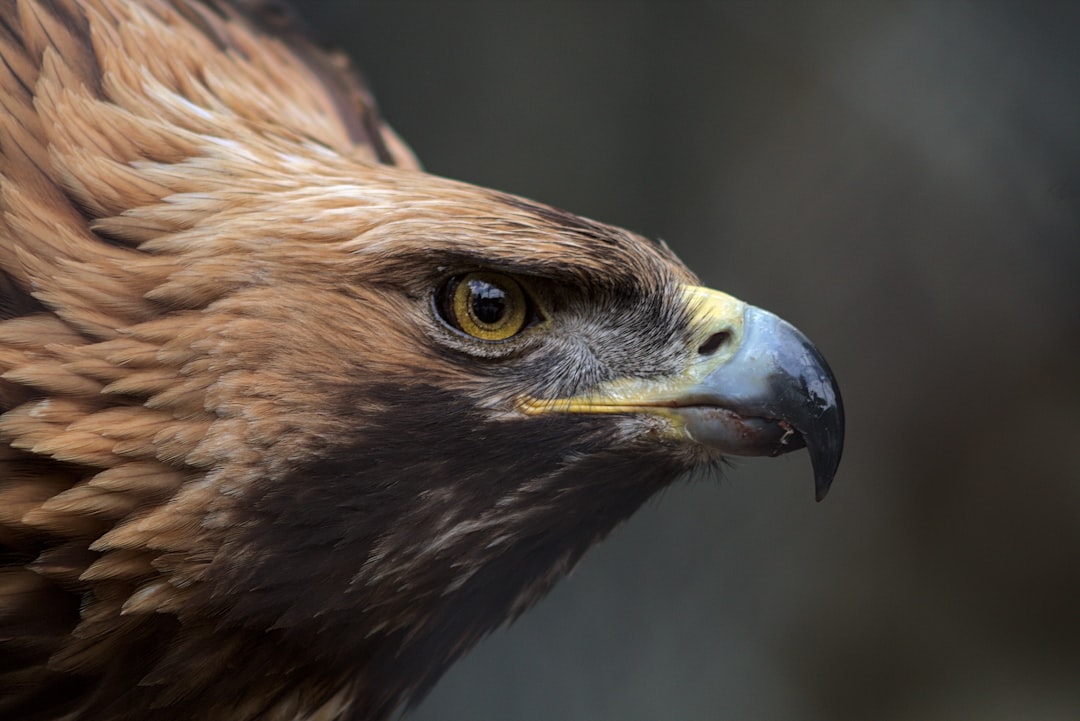
While I work my way through that, I also just wanted to mention the podcast Wild Animals with Dr. Roland Kays, out of North Carolina State University. He interviews field researchers — people who are out in the field, observing animals all the time — about one particular animal that they’ve gotten to know in the course of their research.
Talk about strand by strand. Talk about tethering yourself to a hawk.
I’ve just listened to the one on Waffles the hyena.
First of all, let’s all take a moment to appreciate hyenas. They live in a matriarchal society and apparently they use a combination of inheritance and a set of heuristics to decide status. Younger female hyenas are more likely to inherit status eventually than their older sisters. (Shades of Jacob and Esau there.)
Warfare and political conflict are rare in hyena societies because hyenas agree on both the rules of inheritance and the set of qualities that make a good leader. But what are those qualities? (And can we borrow them? Please?)
Scientists, curious about the characteristics hyenas used pick their leaders, started watching for the anomalies. The failures. The packs with drama.
And that’s what got Dr. Eli Strauss, the hyena researcher, on the show. He started watching a hyena named Waffles. (Waffles is the primogenitor of an entire generation of hyena children named for syrups. There’s a lot of fun in this podcast, and I’d attribute about 17% of it to sentences like, “That’s when Log Cabin got in a fight with Sherman.”)
Waffles was the lowest-status female. The only hyenas lower than her on the totem pole were the male hyenas. But she wanted more in her life, more for her kids. So, she formed a coalition with a hyena named Peepers and her daughter, Log Cabin.
Things did not go well for Peepers. In general, status challenges between hyenas are speedy, fairly safe affairs.
“I’m better than you!” the lower-status hyena might say.
“No you’re not,” the higher-status hyena might growl, perhaps snapping her jaw for emphasis. Hyenas have some of the strongest jaws in the animal kingdom. They can crunch straight into bone, suck out the marrow.
No one wants a real fight with a hyena, or at least, not usually. “You’re right, you’re better!” The lower-status hyena might giggle, and run away.
But not Peepers, and not Waffles. They stood their ground, and Peepers died for the transgression.
Waffles, however, lived. She made it to the top, too — leader of the pack for several years, and had thirteen cubs. She’s getting old now, she’s sinking in political stature, but her youngest daughters are moving up the ranks.
I loved hearing the story of Waffles, and to be honest, I could have done with even more of it. What happened when she and Peepers made their first challenge? What was it like, as field researcher, watching hyena pack after hyena pack make peaceful transfers of power and then to spot Waffles, so relatable, the hyena who wanted more.
Why is the podcast named for Waffles, the victor, and not Peepers, the unfortunate loser? Or at least, Waffles and Peepers?
Why is it so impossible to watch animals and not see ourselves reflected back?
I also loved reading about Tom Plucks’ trail blazing in the pine barrens and exploration of the world of Beaver Deceivers. (Seriously, this is a thing.)
Wishing you all a wanderful week.

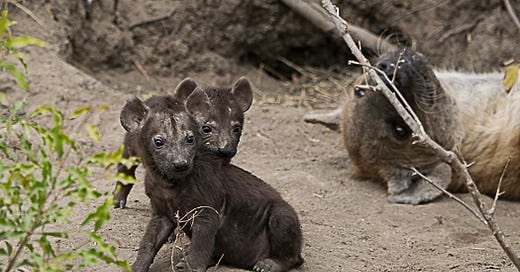


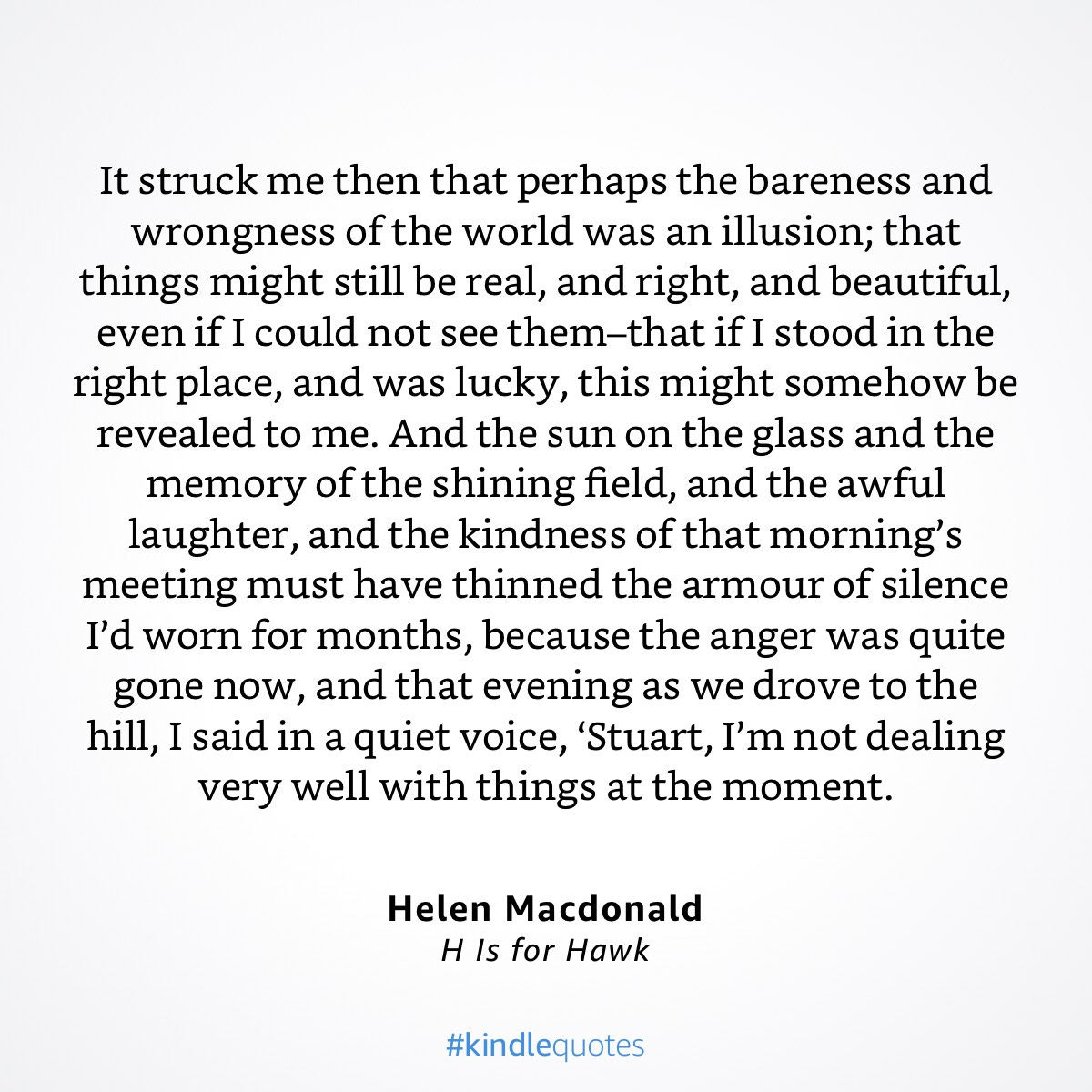
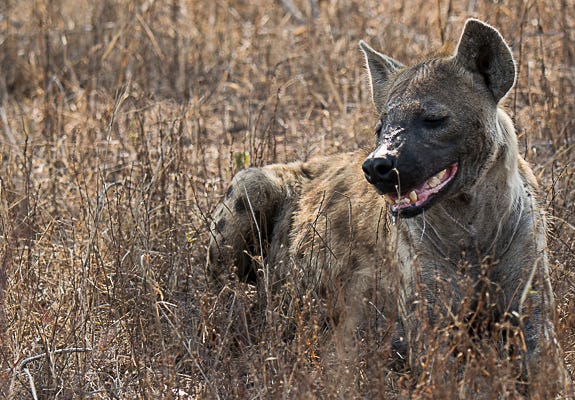
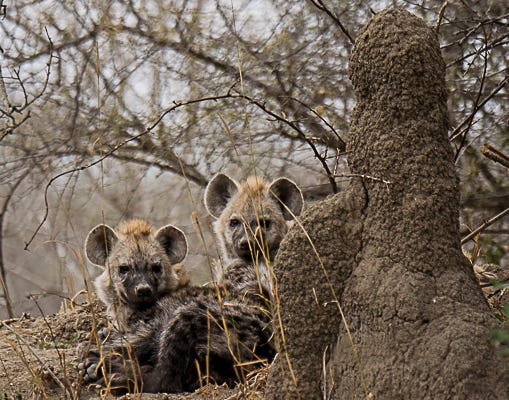

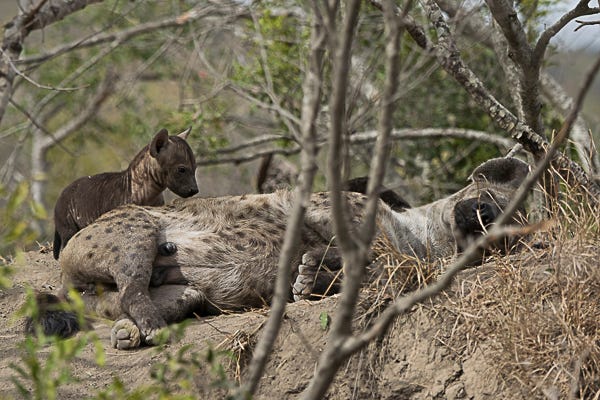
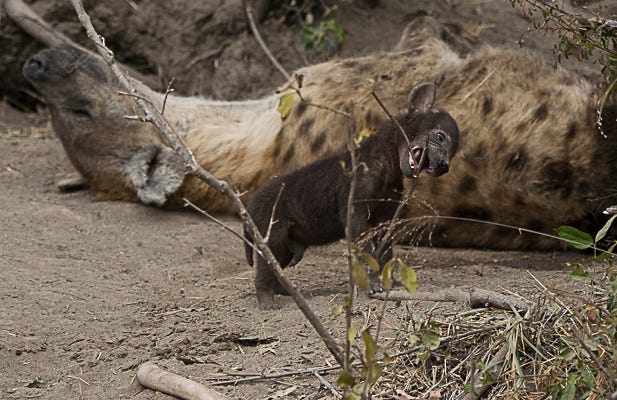

H for Hawk is such a powerful book. It stayed with me for so long. I think there's a second book by Helen MacDonald and I should that to my reading list.
There's something about observing animals (or hearing others' observations) that makes me think of our own lost wildness...
Well, there's a podcast I need to add to my list. Thank you.